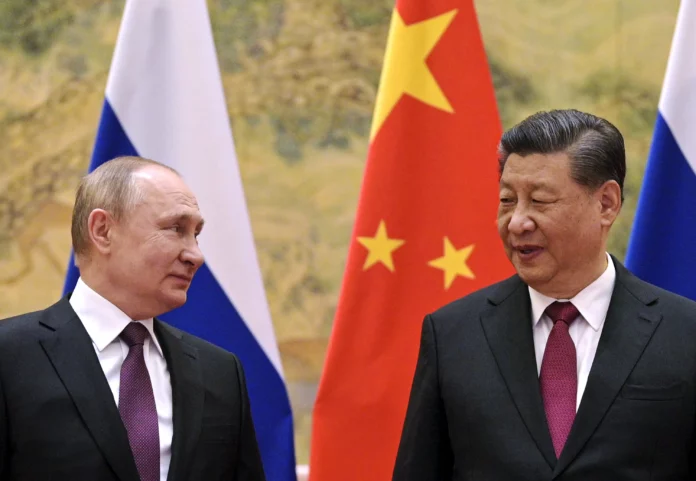As Russia’s position as a global power weakens amid its ongoing conflict with Ukraine, China and Turkey are seizing the opportunity to capitalize on Moscow’s faltering economy, according to a report from Geopolitical Intelligence Services (GIS).
Before the war, Russian President Vladimir Putin met with Chinese President Xi Jinping, discussing their countries’ “limitless friendship.” However, GIS expert and economist Stefan Hedlund argues that the relationship has since become lopsided, with China benefitting from Russia’s resources while offering little in return.
For instance, there has been minimal direct investment from China in the Chinese Belt and Road initiative, even though Russia anticipated gains from the project. Additionally, China’s promise to help construct a high-speed railway between Moscow and Kazan did not materialize.
Highlighting Russia’s exclusion from the upcoming China-Central Asia Summit on May 18, Hedlund explains that the decline of Russia as a major power has far-reaching implications for Central Asia. The previously assumed division of roles—Russia providing security while China contributes investment and business development—may no longer exist.
Hedlund suggests that Russia’s armed intervention in Kazakhstan in 2022 could be Moscow’s “last stand” in Central Asia, as joint military exercises with other nations have been canceled. With Russia’s economy under strain, its future role in regional trade and development is uncertain.
China, on the other hand, has increased its investment in Central Asia to approximately $40 billion by the end of 2020, and its trade with the region reached $70 billion by the end of 2022—a 40% increase from the previous year.
Furthermore, Turkey appears poised to assume a larger role in Central Asia as Russia’s influence wanes. Hedlund predicts that Turkey and China will emerge as the most active players in the region, with China’s robust economy giving it an advantage over Ankara.
As entrepreneurs and investors monitor the shifting geopolitical landscape, they should be aware of the potential opportunities and challenges that may arise from Russia’s decline and the growing influence of China and Turkey in Central Asia.

